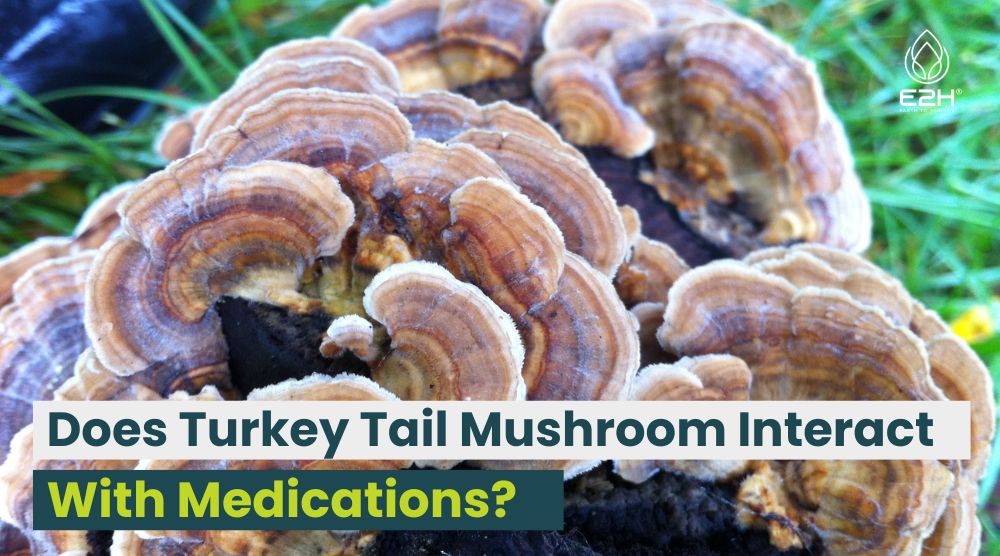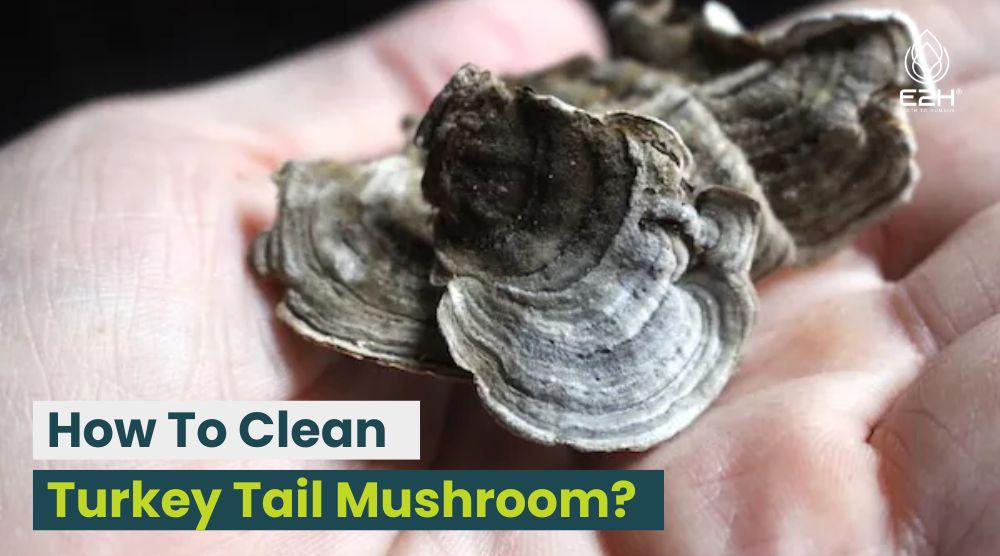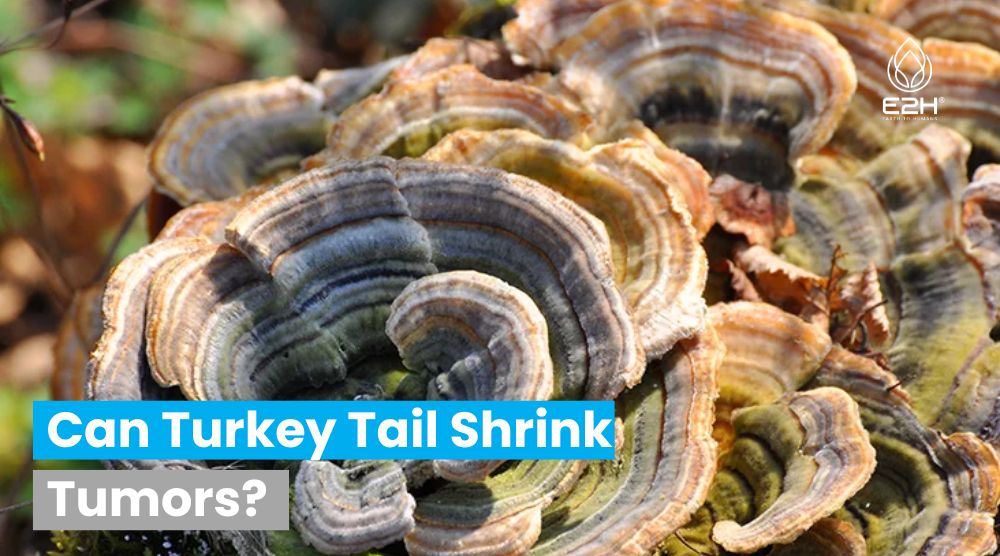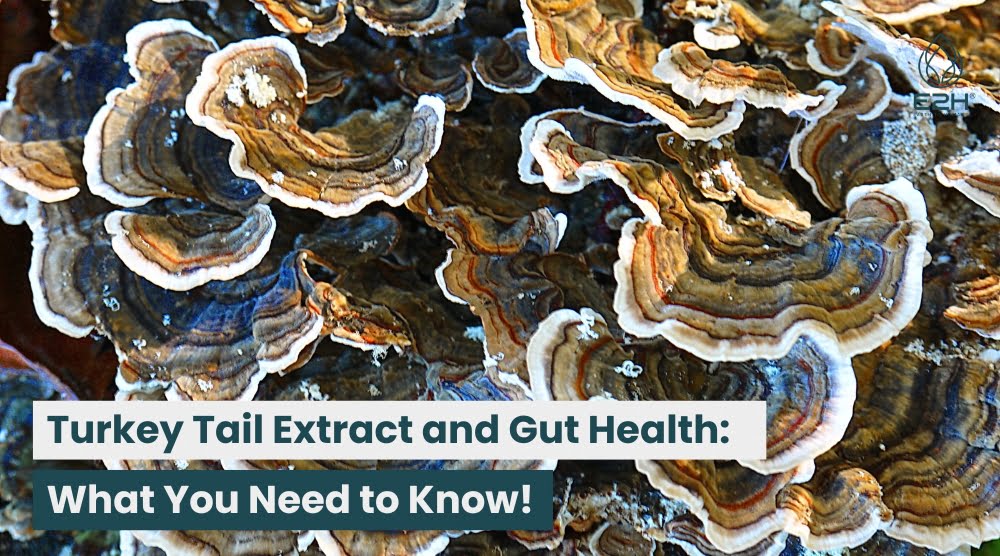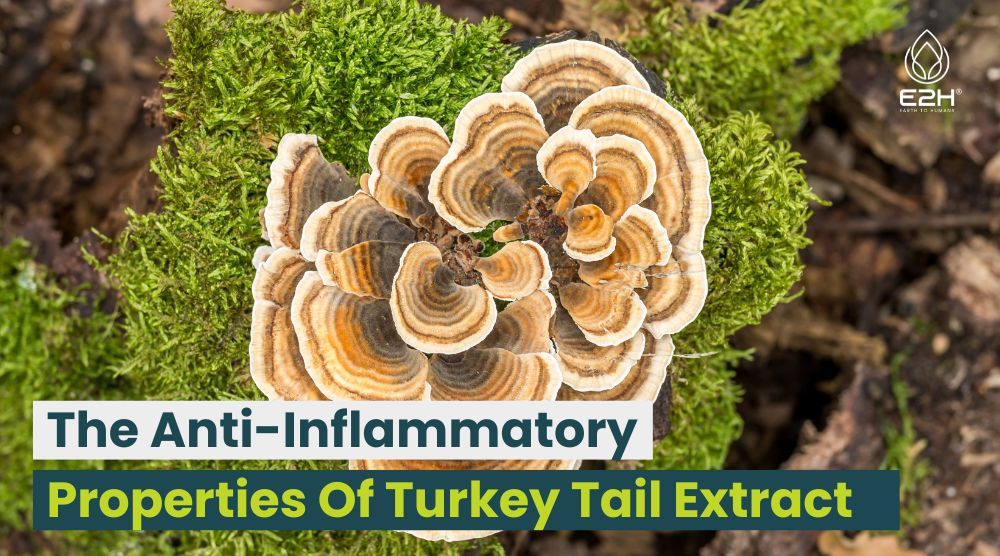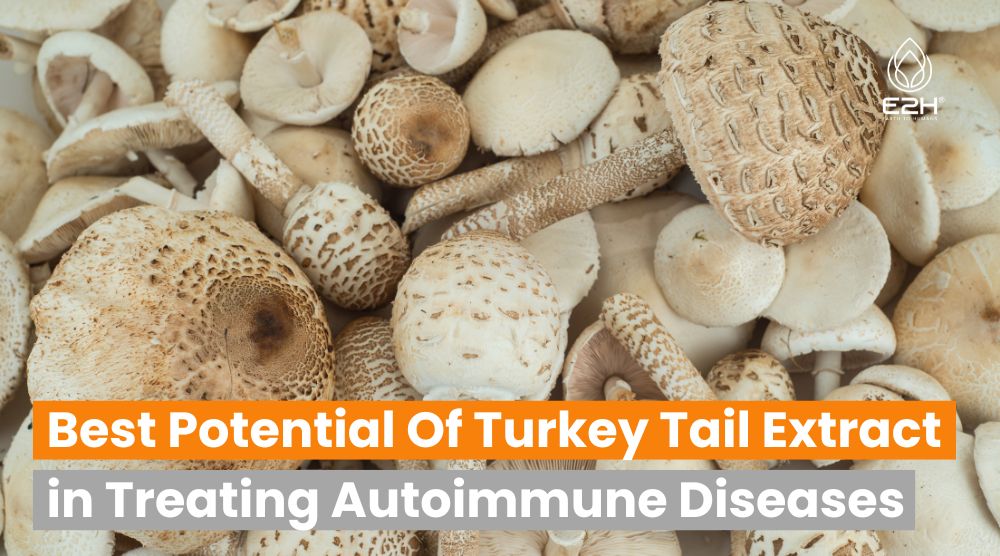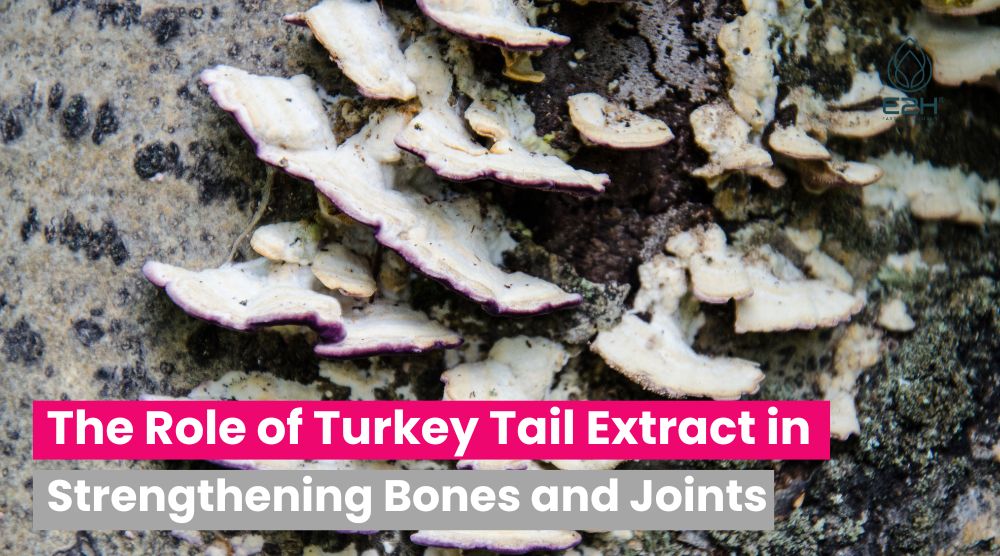Does Turkey Tail Mushroom Interact With Medications: Yes, Turkey Tail Mushroom can potentially interact with certain medications. It is important to consult with a healthcare professional before using it if you are taking medications.
What is Turkey Tail Mushroom?
Turkey Tail Mushroom is a type of medicinal mushroom commonly found in forests around the world. Its name derives from its vibrant colors and fan-like shape, resembling the tail feathers of a turkey. It has been used for centuries in traditional Chinese medicine and other ancient healing practices for its immune-boosting properties.
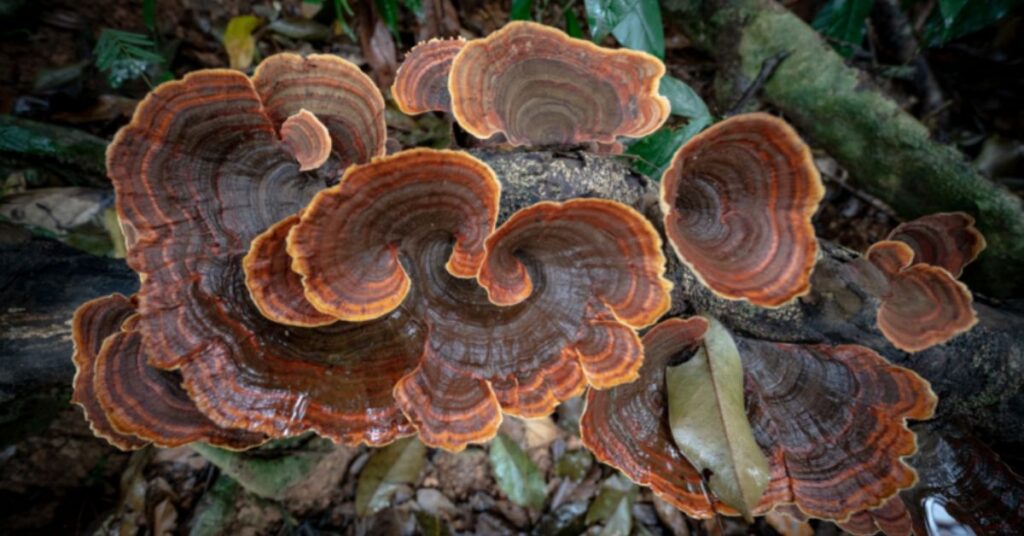
Health Benefits of Turkey Tail Mushroom
Turkey Tail Mushroom is rich in bioactive compounds, including polysaccharopeptides and polysaccharides, which are believed to contribute to its health benefits. Some potential benefits associated with Turkey Tail Mushroom include:
- Boosting the immune system
- Supporting gut health
- Providing antioxidant properties
- Enhancing energy levels
- Supporting liver function
Medications and Interactions
When considering the use of natural supplements like Turkey Tail Mushroom, it is essential to be aware of potential drug interactions, with medications you may be taking. Several factors can influence these drug interactions though, such as the specific medication, dosage, individual health conditions, and overall drug metabolism.
Factors to Consider
Before incorporating Turkey Tail Mushroom into your healthcare regimen, it is important to consider the following factors:
- Medication Sensitivity: Some medications are more likely to interact with natural supplements, while others have a lower likelihood of interaction.
- Dosage and Frequency: Higher doses of Turkey Tail Mushroom may increase the likelihood of interactions, so it is crucial to adhere to recommended dosages.
- Individual Variations: People’s bodies metabolize medications differently, leading to variations in drug interactions. Personal factors such as age, weight, and overall health can play a role.
Possible Interactions
While research on the interactions between Turkey Tail Mushroom and medications is still limited, it is believed that this natural supplement may interact with certain medications due to its own, immune system response-enhancing properties. By stimulating the immune system, Turkey Tail Mushroom could potentially affect the way medications are metabolized and may lead to unexpected, adverse effects afterwards.
Interactions with Specific Medications
To gain a better understanding of the potential interactions between Turkey Tail Mushroom and medications, let’s explore the implications of turkey tail fungus for various drug categories.
Anticoagulants and Antiplatelet Drugs
Turkey Tail Mushroom contains natural compounds that have anticoagulant properties, meaning they can thin the blood and inhibit platelet aggregation. If you are taking anticoagulant or antiplatelet medications like warfarin or aspirin, combining them with Turkey Tail Mushroom could increase the risk of bleeding. It is advisable to consult with your healthcare provider before using Turkey Tail Mushroom if you are on such medications.
Immunosuppressants
Turkey Tail Mushroom’s immune function-boosting effects may interact with medications prescribed to suppress the immune system, such as corticosteroids or organ transplant anti-rejection drugs. It is crucial to discuss the potential interactions with your healthcare provider, as Turkey Tail Mushroom’s immune function-enhancing properties could interfere with the desired effects of these medications.
Chemotherapy Drugs
If you are undergoing chemotherapy or taking medications for cancer treatment, it is vital to exercise caution when considering the use of Turkey Tail Mushroom. While some studies suggest that Turkey Tail Mushroom may have potential anticancer properties, it is important to avoid self-medicating and consult with your oncologist or healthcare provider before incorporating it into your cancer treatment or plan.
Diabetes Medications
Turkey Tail Mushroom may affect blood sugar levels and potentially enhance the effects of diabetes medications. If you have diabetes and are taking medications to manage your blood sugar, it is crucial to monitor your glucose levels closely if you choose to include Turkey Tail Mushroom in your routine. Regular communication with your healthcare provider is essential for appropriate dosage adjustments and monitoring.
Blood Pressure Medications
Turkey Tail Mushroom may have mild hypotensive effects, meaning it can lower blood pressure. If you are taking medications for hypertension, such as beta-blockers or ACE inhibitors, combining them with Turkey Tail Mushroom could lead to a further decrease in blood pressure. Close monitoring and consultation with your healthcare provider are crucial to prevent any adverse effects.
Precautions and Recommendations
To ensure your safety and optimize the potential benefits of Turkey Tail Mushroom, consider the following precautions and recommendations:
- Consulting a Healthcare Professional: Before incorporating Turkey Tail Mushroom into your healthcare routine, consult with a knowledgeable healthcare professional, especially if you have any underlying health conditions or are taking medications.
- Starting with Low Dosages: Begin with a low dosage of Turkey Tail Mushroom and gradually increase it as tolerated. This approach allows you to monitor your body’s response and identify any potential adverse effects.
- Monitoring for Side Effects: Pay close attention to any changes in your body or unusual symptoms while using Turkey Tail Mushroom. If you experience any concerning side effects, discontinue use and consult with your healthcare provider.

What are the benefits of using turkey tail extract?
Turkey tail extract, derived from the mushroom Coriolus versicolor, offers numerous health benefits. It is rich in antioxidants, particularly polysaccharopeptides, which help boost the immune system by stimulating the activity of natural killer cells and enhancing overall, immune system function. Turkey tail extract also contains prebiotics that promote a healthy gut microbiota, supporting digestion and nutrient absorption.
Research suggests that it may have anticancer properties, aiding in the prevention and treatment of certain cancers. Additionally, turkey tail extract possesses anti-inflammatory and antimicrobial properties, potentially reducing the risk of infections and chronic inflammation. Its wide-ranging benefits make it a promising natural supplement for overall wellness.
Do mushroom supplements interact with medications?
Mushroom supplements, including turkey tail mushroom supplements, can potentially interact with medications. Some compounds found in mushrooms may affect the metabolism of certain drugs, leading to altered effectiveness or side effects. It is crucial to consult with a healthcare professional or pharmacist before combining mushroom supplements with any medications to ensure safety and avoid potential interactions.
Who shouldn’t take turkey tail mushrooms supplement?
Some individuals should exercise caution or avoid taking turkey tail mushroom supplements. Those with autoimmune diseases, such as lupus or rheumatoid arthritis, should consult a healthcare professional due to potential immune system stimulation.
Individuals with organ transplants, those on immunosuppressive medications, or those with allergies to turkey tail mushrooms should refrain from using turkey tail mushrooms as supplements. Pregnant or breastfeeding women should also seek medical advice before using them. It’s always advisable to consult a healthcare professional before starting any new supplement regimen, especially if you have underlying health conditions or are taking medications.
How should turkey tail mushroom be taken for colorectal cancer?
Turkey tail mushroom extract can be used as an adjunct therapy for colorectal cancer patients. The recommended dosage varies depending on the specific product and individual needs, so it’s crucial to follow the instructions on the supplement’s packaging or consult a healthcare professional. Generally, turkey tail mushroom extract is available in capsule or powder form.
It is typically taken orally, alongside standard colorectal or cancer patients other treatments like chemotherapy or radiation therapy. However, the exact dosage and usage should be determined by a healthcare professional based on the individual’s condition and other treatment protocols.
Is there any evidence that turkey tail mushrooms can cure breast cancer?
While turkey tail mushrooms show promise in cancer research, there is currently no evidence to support the claim that they can cure breast cancer patients. Some studies suggest that turkey tail mushroom extract may have potential benefits in supporting immune function in cancer cells and enhancing the body’s response to cancer treatments.
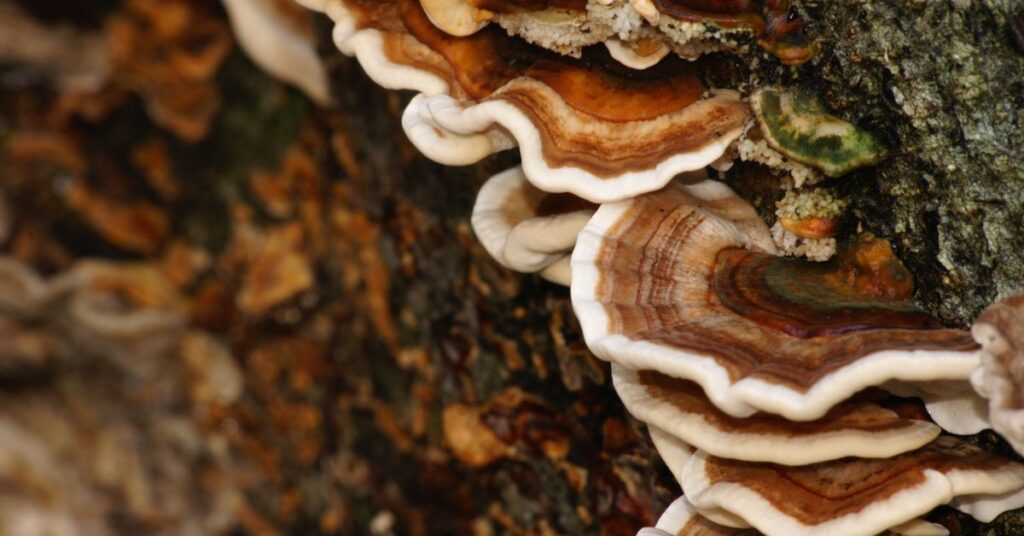
However, it’s important to note that these studies are primarily preliminary or conducted on cells or animals, and more robust clinical trials are needed to establish its therapeutic efficacy in human breast cancer patients. Turkey tail edible mushrooms therefore should not be considered a standalone cure for breast cancer, and individuals should rely on established medical treatments for proper care.
Does turkey tail affect blood pressure?
Turkey turkey tail fungus or mushroom has mild hypotensive effects, meaning it may lower blood pressure. Individuals who already have low blood pressure or are taking medications for hypertension should be cautious when using the turkey tail fungus or mushroom. Combining it with blood pressure medications could lead to a further decrease in blood pressure, potentially causing adverse effects. Regular monitoring and consultation with a healthcare professional are advised to ensure blood pressure remains within a safe range.
Is turkey tail safe to take?
Turkey tail mushroom is generally considered safe for consumption. However, individual reactions may vary, and some people may experience side effects such as digestive discomfort or allergic reactions. It is important to follow recommended dosages and consult with a healthcare professional before using turkey tail mushroom, especially if you have any underlying health conditions or are taking medications. Additionally, sourcing high-quality turkey tail mushroom grows and supplements from reputable manufacturers can help ensure safety and efficacy.
Turkey Tail Mushrooms: Immune System, Gut Health, Obesity Reduction, And Fights Cancer
FAQs
Can I take Turkey Tail Mushroom if I’m not taking any medications?
Yes, Turkey Tail Mushroom can be safely consumed by individuals who are not taking any medications. However, it is always advisable to consult with a healthcare professional before adding medicinal mushrooms or any new supplement to your routine.
Can Turkey Tail Mushroom cure, lung cancer and breast cancer..?
Turkey Tail Mushroom shows clinical evidence of potential anticancer properties, but it is not a standalone cure for lung, breast cancer, or liver cancer. It should be used as a complementary therapy under the guidance of healthcare professionals.
Conclusion
Turkey Tail Mushroom is a fascinating natural remedy with potential health benefits, including an immune response, support and antioxidant properties. While it is generally safe for many individuals, it is essential to consider the potential interactions between Turkey Tail Mushroom and the medications you may be taking. By understanding these interactions and exercising caution, you can make informed decisions about incorporating Turkey Tail Mushroom into your healthcare routine.
